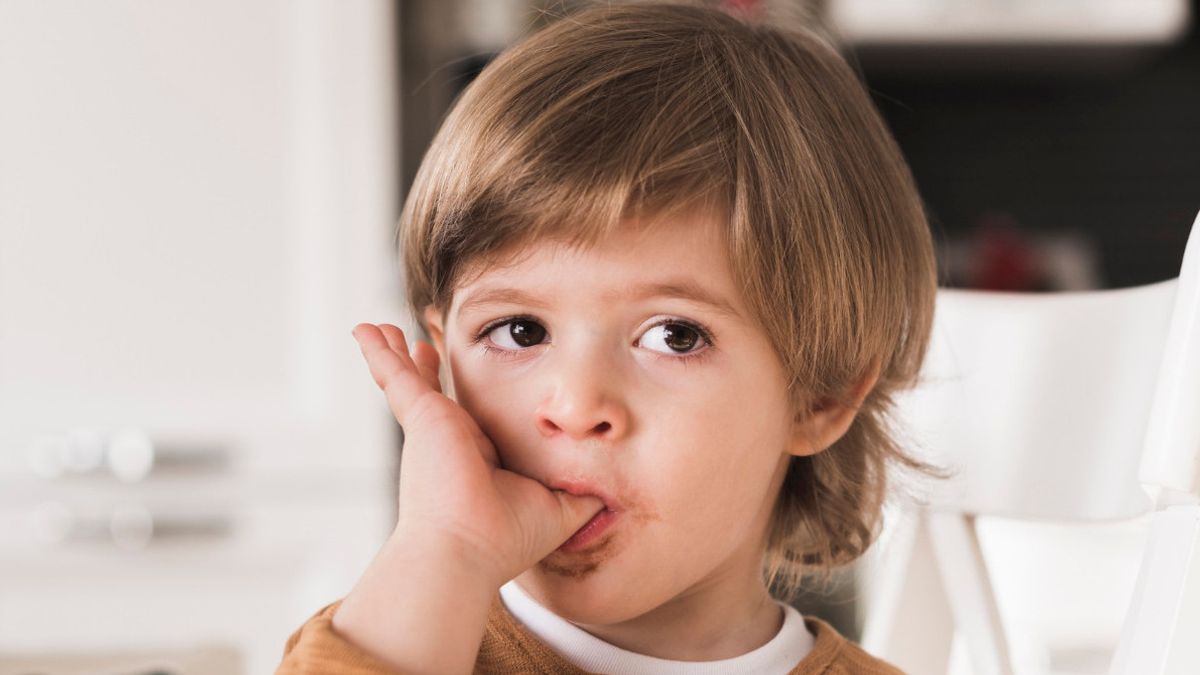YOGYAKARTA Every habit that is repeated and carried out by children, there is always a reason. These children's habits, may help them adjust their senses. Like biting clothes, smoking their fingers or favorite objects, to gestures that mark them are nervous.
According to the study, 70 percent of children who are developing are making repeated movements and appear to be without a purpose. Like biting nails or clothes, turning hair, or shaking feet. According to a pediatrician at Philadelphia Children's Hospital, Amanda Bennett, MD., once you understand why they do it, you will no longer see it as a strange habit or an aimless behavior. To better understand why children have strange habits, here's a form of custom and what the reason they do it.
Lindsey Biel, a pediatric occupancy therapist, explained that children are attracted to the mouth, chew, and smoke that may have done the habit because their mouths are a bit less sensitive.
"For these children, most likely this mouth behavior releases fun and calming neurotransmitters such as serotonin and dopamine, which helps them feel calm, not too bored, and more involved," Biel explained.
Although this behavior is generally harmless, you need to provide an explanation and redirect if the object being swabbed is a germ nest, can make you choke, and is dangerous. According to the American academic of Pediatrics reported by Parents, Friday, August 11, if smoking a thumb or finger continues after the age of 2 to 4 years, it can affect the shape of the child's mouth or cause ortho problems such as overbiting.
Bennett's advice, giving him rubber candy could be an alternative to meeting oral needs whose effects are the same and even better because according to research it can help increase vigilance and cognition.
As children sway and spin before bed, it may actually be because they are working hard to push small calcium carbonate liquids, hair and crystals in their inner ear. The crystal forms a vestibular system that monitors movement and balance, explains Lucy Jane Miller, Ph.D., Clinical Director of STAR Institute for Sensorical Processing Disorders at Greenwood Village, Colorado.
"When a child rotates, their passion increases and their ability to remain calm and focus increases. That is, until they reach the top of the curve, when passion continues to increase but performance decreases," Miller explained.
But even if it's reasonable, if done too much it can cause sensory problems. This means it's very important to work with your child. It's also good to have a special toy at home that meets the sensory needs of children, such as horses.
Sensing involves the sense of smell. More than that, the smell is one of the sensory systems that is directly connected to the limbic system and is the center of emotion, memory, and pleasure of the brain.
"It's all about socialization, and children often sniff out the things that give rise to beautiful memories that they think are entertaining," explained Biel.
This soothing smell can help children feel safer and more secure. Or make them relaxed enough to make it easier to sleep. Not only that, children sniff out something and are also looking for more sensory information than others. Apart from pleasure and comfort, they are hyposensitive and sometimes looking for odors that are not considered comfortable.
Creating, turning hair, until hitting, is some movement that marks anxiety. This restless upper movement results in a sensation of full touch, Miller said. According to research, the body releases an oxytocin neurotransmitter that makes you feel comfortable in response to the movement to search for touch of your fingers and hands, such as repeatedly stroking your hair gently.
"We know that all children move more during challenging mental activity than they did during less challenging activities," said Michael J. Kofler, Ph.D., professor of psychology at Florida State University in Tallahassee, Florida.
This means that in addition to calming, anxiety can also help children concentrate. These small movements are to stimulate their brains. Some children, especially those suffering from ADHD, nervous movements help their brains stay active and increase memory.
VOIR éGALEMENT:
That's a recurring habit that actually has a reason even though it is considered strange. However, if these behaviors interfere with their daily functions, it may mark sensory processing disorders. So if you're worried, talk to your pediatrician and refer to an occupancy therapist to get therapy.
The English, Chinese, Japanese, Arabic, and French versions are automatically generated by the AI. So there may still be inaccuracies in translating, please always see Indonesian as our main language. (system supported by DigitalSiber.id)














